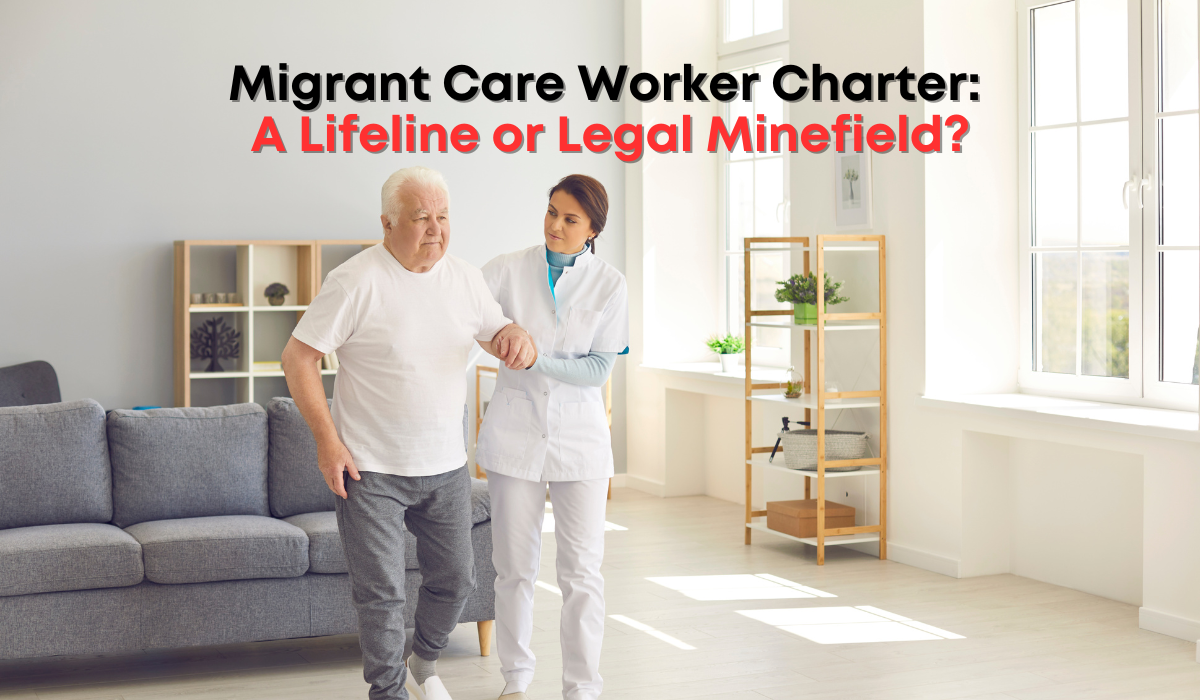The exploitation of migrant care workers in the UK is a grim reality, with many genuine workers left jobless after paying thousands to relocate. UNISON’s newly launched Migrant Care Worker Charter seeks to change this narrative by protecting workers under the Health and Care visa scheme. Yet, while its ethical goals are commendable, the charter raises several legal and practical concerns for sponsors and care workers alike.
What is the Migrant Care Worker Charter?
Announced on 4 November 2024, this charter includes commitments from signatories—such as Salford Council, the first local authority to join—to act as an “employer of last resort” for care workers. This means supporting migrant workers whose employment has been terminated through no fault of their own, ensuring their migration status is not jeopardized. Additionally, the charter proposes the creation of an “ethical recruiter list” to prevent rogue employers from accessing public funds.
While the charter represents a vital push for accountability, its implementation could face challenges from an immigration law perspective.
The Scale of Exploitation in the Care Sector
Reports reveal widespread exploitation of migrant care workers, with unscrupulous employers promising jobs that fail to materialize. Many workers, lured by false promises, find themselves in legal and financial peril. The charter’s emphasis on ethical recruitment and safeguarding workers is a much-needed intervention.
Legal and Financial Challenges for Employers
Despite its good intentions, the charter places sponsors in a precarious position. Under current immigration rules, sponsors must assign Certificates of Sponsorship (COS) only for genuine vacancies. According to Home Office guidelines, non-genuine vacancies include roles that:
- Exist purely to maintain a migrant’s stay in the UK.
- Were created solely to exploit the sponsorship system.
- Do not exist at all or involve supplying labor to third parties.
In a recent 2024 High Court case, a care company lost its license for assigning COS to migrants who were supplied as labor to other firms. Salford Council and other signatories will need to ensure that their “employer of last resort” roles meet these stringent genuineness criteria.
Furthermore, sponsors must meet minimum pay thresholds. The current salary requirement for skilled workers is £23,200 per year, or £11.90 per hour. With the National Living Wage set to rise to £12.21 per hour in April 2025, these costs could escalate further, especially for councils operating under tight budgets.
Key Considerations for Compliance
To implement the charter effectively while staying compliant with immigration law, sponsors must address several critical questions:
- Will the roles offered meet the genuine vacancy requirement?
- Can sponsors afford the increased wage demands?
- How will the Home Office respond to this new “employer of last resort” concept?
Supporting Migrant Care Workers Beyond Sponsorship
For migrant workers on non-sponsored visas, employment restrictions are more flexible, allowing easier transitions between jobs. However, many exploited workers are tied to their sponsors, facing severe consequences if their sponsorship ends. Providing robust legal and employment support to these individuals will be crucial in reducing exploitation and promoting fair treatment.
Final Thoughts
UNISON’s Migrant Care Worker Charter sets a promising precedent for tackling exploitation in the care sector. However, navigating the complex immigration framework requires meticulous attention to compliance. Employers must strike a careful balance between ethical intentions and legal obligations.
As the UK government and councils like Salford take steps to support migrant care workers, one thing remains clear: this charter has the potential to transform lives—if implemented with care, precision, and adherence to immigration law.
For employers and workers alike, staying informed and seeking professional legal advice will be essential in navigating the road ahead.
Get in touch: For a comprehensive understanding of your options or queries on UK immigration matters, contact GigaLegal Solicitors at 02074067654 or click here to book a no-obligation consultation with an immigration expert.


